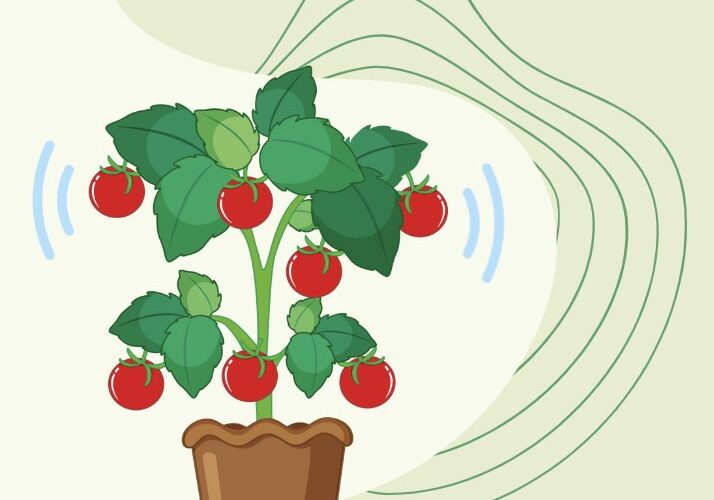A recent study has revealed that plants emit ultrasonic airborne sounds when stressed.
Researchers at Israel’s Tel Aviv University conducted this unique study where they were able to track sounds that are emitted by Plants. However, if you wondering why we are never able to hear them, it is because they are emitted at frequencies beyond the hearing range of the human ear.
What is interesting about Plant sounds is their ability to emit distinct sounds in different conditions. When exposed to stress, plants exhibit significant changes in their phenotypes. A tomato plant that was dehydrated emitted more sounds compared to a tomato plant clipped at the stem.
Thirsty tomato plants emitted about 35 ultrasonic clicks per hour, while tomato plants trimmed at stems were slightly less noisy. The plants that are not water-stressed or chopped remained mostly quiet.

This unique behavior in the plants is extremely interesting for scientists, who are still unsure what’s causing the emitted sounds. The sounds could come from bubbles popping within the tubes that transport water and nutrients from their roots to their stems and leaves
While the study focussed on tomato and tobacco plants, wheat, corn, and cactus plants were also recorded, and they also were found to emit sounds when stressed.
The team placed plants in an acoustic box in a quiet and isolated location with no background noise and set up ultrasonic microphones to record the sounds. The team further analyzed the recordings using machine learning algorithms to distinguish between different plants and types of sounds.
Significance of Plant Sounds
The research augments the understanding that botanists thought they knew about the plant kingdom. As such, plants had been considered largely silent.
Earlier research has already proven that plants react to sounds. Now, this latest discovery proves that Plants are neither dumb nor mute.
The knowledge that plants can produce sounds offers a new way to analyze the botanical world.
The ability to monitor water stress in plants through sounds could help in agriculture and farming. Technology can be leveraged in your home gardens when on a long holiday, whereby an automated system can water the plant whenever the plant calls for it.
In addition, it opens up interesting possibilities to examine if other animals in the biodiversity react to plant sounds. Bats, butterflies, mice, and insects could be reacting to the sounds of plants, and it could also be that plants respond to sounds made by animals. While we already know the symbiotic relationship between the plant world and the animal kingdom, this connection with sound could open up unique avenues of research.
Other potential significance of plant sounds could be their reaction to weather changes, pest attacks, UV radiation, and different growth stages of plants.
You might also like to read about another interesting scientific development by Israel-based food-tech startup BioBetter. The company has developed a technology to leverage tobacco plants to produce ingredients that accelarate cell growth in lab meat manufacturing.






Add comment